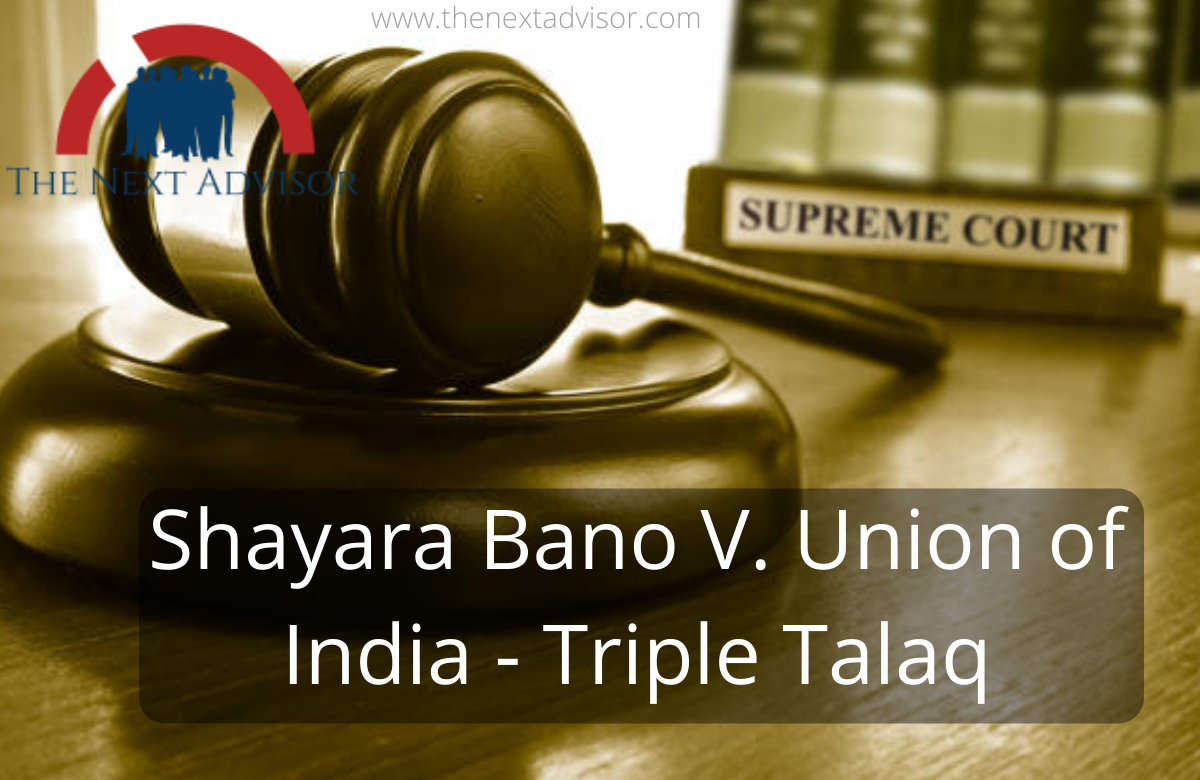Shayara Bano v. Union of India is the landmark judgment. Shayara said that she does not want any other woman to go through this. That is why She has filed the Petition in the Supreme Court. So that more women raise their voices against injustice.
Shayara Bano expressed her felling in the following lines. Shayara says, ” Men can say Talaq-Talaq-Talaq and can easily remarry, Rules in Muslim Law Board give more rights to men. My husband gave me a divorce by post on 10 October 2015. I showed the divorce papers to a Muslim cleric and he told me that the papers are fine and I have been divorced. I did MA in Sociology. Before marriage, I was free. After marriage, my in-laws were not keen on me doing a job. So I did not. I was 23 when I got married in Allahabad. My mother-in-law started telling me that they did not get much from me as dowry. She used to say “My son will divorce you” and my husband used to listen to his mother”.
Since Bano filed the Petition, At least five other women joined her, from Kerala to Kolkata. All asking the court for a similar ban. Shayara Bano, Age:-35, filed a petition before the Supreme Court in February asking for a ban on Triple Talaaq, Polygamy, and Nikah-Halala practices which are enshrined in Muslim personal law.
Introduction of Shayara Bano v. Union of India
The Shayara Bano case is popularly known as, the ‘Triple Talaq case’. There are certain types of divorce in Islamic Law and all are valid however it is Talak ul biddat that is the issue of controversy. This is known as Triple talaq which was challenged before the Supreme Court in this case.
Facts of Shayara Bano v. Union of India
>Shayara Bano was married to Rizwan Ahmed in 2002. She was visiting her parents in October 2015when her husband Rizwan Ahmed, sent her a letter, a divorce letter. The word ‘talaq’ was written thrice in it ( talaq -i- Biddat).
>Shayara Bano argued before the Supreme Court of India that three practices – triple talaq, polygamy, and nikah halala were unconstitutional.
>Shayara Bano argued before the Supreme Court of India in Shayara Bano v. Union of India, that three practices – triple talaq, polygamy, and nikah halala were unconstitutional. (the practices requiring women to marry and divorce another man so that her previous husband can remarry her after triple talaq).
>She claimed that they violated several fundamental rights under the Constitution of India namely Articles 14 (Equality before law), 15(1) (Prohibition of discrimination including on the ground of gender), 21 (Right to life), and 25 (freedom of religion).
>In this case, the Court focused solely on the practice of triple talaq.
Issues before the Honorable Supreme Court in Shayara Bano v. Union of India
1. The validity of triple talaq.
2. Whether triple talaq is an essential religious practice?
Shayara Bano v. Union of India, Judgment:-
The five judges from five different communities are Chief Justice JS Khehar (a Sikh), justices Kurian Joseph (a Christian), RF Nariman (a Parsi ), UU Lalit (a Hindu), and Abdul Nazeer (a Muslim). * In a 397, page ruling though two judges upheld the validity of instant triple talaq (talaq-i-biddat), the three judges held that it was unconstitutional thus barring the practice by a 3:2 majority.
One judge argued that instant triple talaq violated Islamic law. The bench asked the Central Government to promulgate legislation within six months to govern marriage and divorce in the Muslim community.
The Court said in Shayara Bano Vs Union Of India, that until the government formulates a law regarding instant triple talaq there would be an injunction against husbands pronouncing instant triple talaq on their wives. “The Judgment did not ban other forms of Muslim divorce that favour men. Only the instant one”.

























